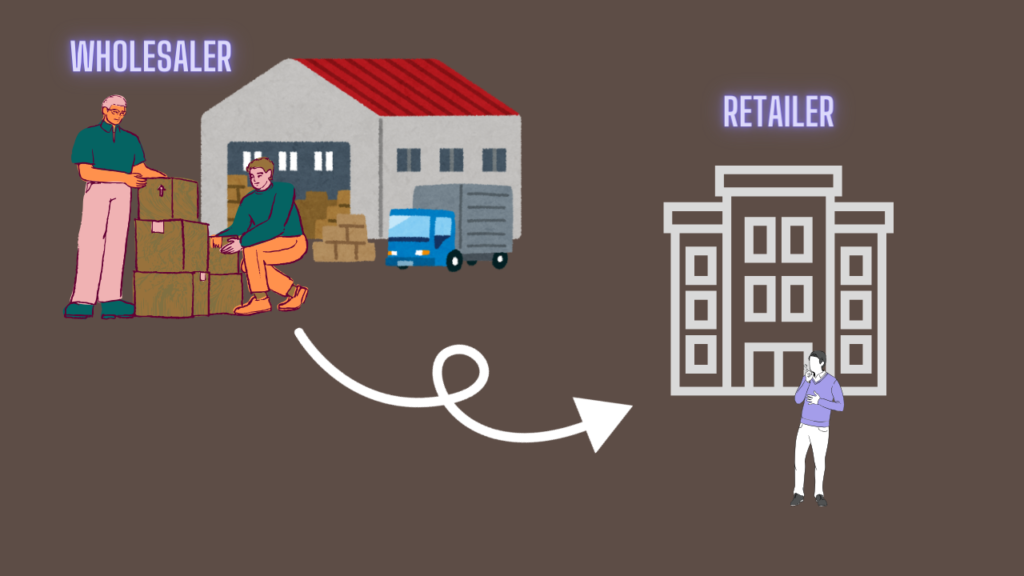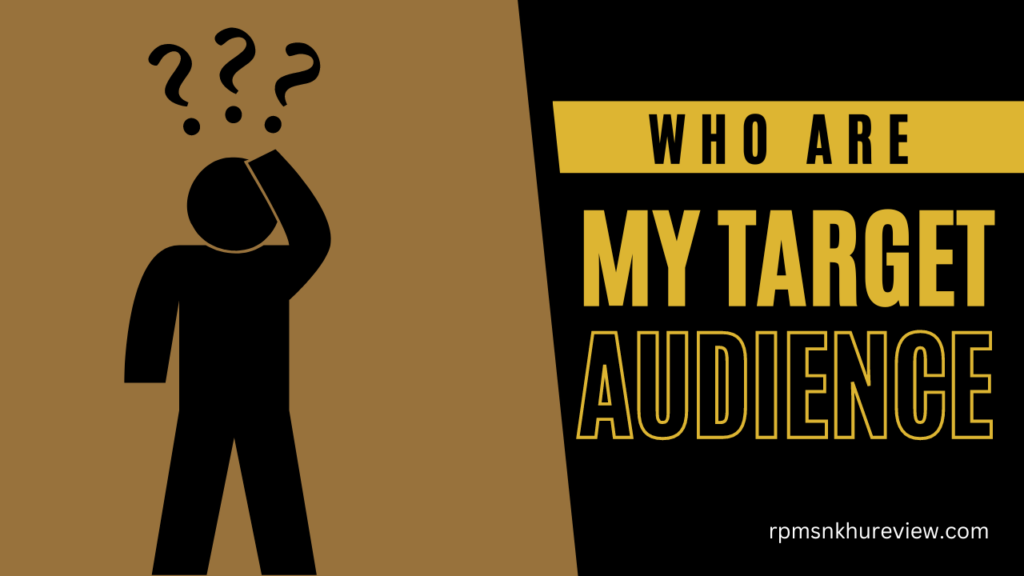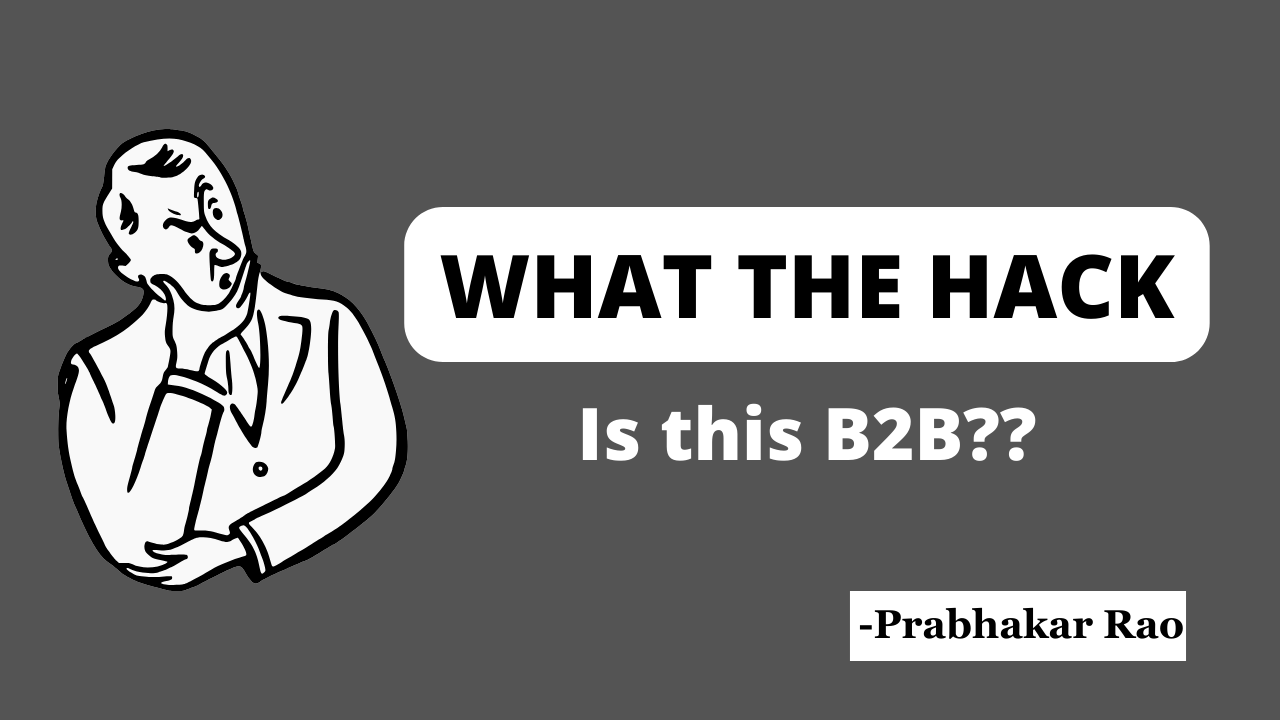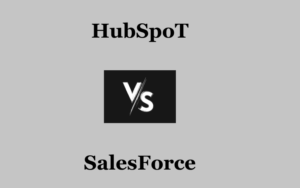Hello fellow Readers, In this blog we will embark our journey to build a strong base knowledge on “what is B2B”.So, Without any further delay; Let’s start our discussion on the question(What is B2B)
Overview of B2B: What is B2B
Here B2B stand for Business-to-Business. Business-to business is a form a transaction between businesses. Here business with their own need connect to other business or service to complete their need. I have a simple illustration that will give you a brief idea about “What is B2B”. Illustration is something like assume a manufacturer such as The most famous company Samsung is one of the biggest suppliers for Iphone production.
This is basically like manufacturer interact with wholesaler or wholesaler to retailer to fulfill their respective need.

Core concept behind “What is B2B”
The core concept behind B2B (business-to-business) is the procees in which exchange of products, services, or information between businesses rather than between a business and a consumer. If it will happen between Business and Consumer then it is being referred by another abbreviation “B2C”( Business to Consumer). In B2B transactions, the prime focus is on meeting the needs of other businesses or services, which often have different requirements and buying processes compared to individual consumers.
Here is one of the Key aspects of the core concept behind B2B include:
- Relationships: B2B transactions are often based on long-term relationships between businesses. It usually need a strong connection between Companies. Trust, reliability, and obvious mutual benefit are crucial component for successful B2B partnerships. Otherwise it brutually fails.
- Volume and Value: B2B transactions typically involve larger volumes and higher values than B2C transactions, as businesses often purchase in bulk to meet their operational needs. Since we are discussing about big Multinational Companies. So it is pretty much obvious that the need will be in very bulky in nature.
- Complexity: B2B transactions can be more complex than B2C transactions due to some obv factors such as contract negotiations, customization, and integration with existing systems.
- Supply Chain: B2B transactions are an integral part of the supply chain, where businesses collaborate to ensure the smooth flow of goods and services from suppliers to end customers.
- Professionalism: B2B interactions require a high level of professionalism and expertise, as businesses are dealing with other businesses that have specific needs and expectations.
Benefits of B2B: Discuss the advantages that businesses can gain from engaging in B2B transactions.(What is B2B)
There are several advantage of B2B. It provide a smoothest way for a company to increase it’s profit. For example , Let’s take an example of manufacturer based company which is used to manufacture the basic equipment that are used to produce laptop and mobile phone type device; If it connect with some company that require these product for their production of final finished product. Then, in this case both will receive their need and grow simultaneously.
It can help to build a profitable connection between MNC(Multinational Companies),
B2B vs. B2C: Highlight the key differences between B2B and B2C business models
There are some key differences between these two business models:

- Target Audience:
- B2B: Targets businesses and other organizations as customers.Here our target audience is another business itself.
- B2C: Targets individual consumers as customers.In this section we will basically discuss mostly about the common people.
- Purchase Motivation:
- B2B: Purchase decisions are driven by meeting business needs and objectives.
- B2C: Purchase decisions are often driven by personal preferences, emotions, and individual needs.
- Decision-Making Process:
- B2B: Involves a longer, more complex decision-making process, often requiring input from multiple stakeholders.
- B2C: Decision-making process is generally shorter and more straightforward, often based on individual preferences and immediate needs.
- Relationships:
- B2B: Focuses on building long-term, strategic relationships based on trust and mutual benefit.
- B2C: Relationships are often transactional, with less emphasis on long-term loyalty.
- Marketing Approach:
- B2B: Marketing focuses on demonstrating how products or services can solve specific business challenges or improve operations.
- B2C: Marketing often emphasizes emotional appeal, brand loyalty, and creating a personal connection with consumers.
- Sales Process:
- B2B: Sales process may involve personalized negotiations, custom solutions, and longer sales cycles.
- B2C: Sales process is often more standardized, with a focus on convenience, price, and promotion.
- Product/Service Complexity:
- B2B: Products or services are often more complex, specialized, and tailored to meet the unique needs of businesses.
- B2C: Products or services are generally more standardized and designed for mass appeal.
- Customer Service:
- B2B: Customer service is focused on providing ongoing support, often with dedicated account management and specialized assistance.
- B2C: Customer service often emphasizes convenience, speed, and resolving individual customer issues quickly.
What is B2B
B2B E-commerce: Discuss the role of e-commerce in B2B transactions and its impact on the industry.
B2B e-commerce, or business-to-business electronic commerce, refers to the online buying and selling of goods and services between businesses. It has become increasingly prevalent in recent years, transforming the way B2B transactions are conducted and revolutionizing the industry in several ways:

- Increased Efficiency: B2B e-commerce streamlines the procurement process, reducing the time and resources required for businesses to place orders, track shipments, and manage invoices. This increased efficiency translates into cost savings and improved productivity.
- Global Reach: E-commerce platforms enable businesses to reach a global audience, expanding their market reach beyond traditional geographic boundaries. This opens up new opportunities for growth and expansion.
- Improved Customer Experience: B2B e-commerce provides a more convenient and user-friendly buying experience for customers, allowing them to place orders at any time and from any location. This can lead to higher customer satisfaction and loyalty.
- Data-Driven Insights: E-commerce platforms collect valuable data on customer behavior, preferences, and buying patterns. This data can be used to gain insights into market trends, optimize pricing strategies, and personalize the shopping experience.
- Integration with ERP Systems: Many B2B e-commerce platforms are integrated with enterprise resource planning (ERP) systems, allowing businesses to automate various processes such as inventory management, order processing, and invoicing.
- Personalization: E-commerce platforms can offer personalized recommendations based on a customer’s past purchases, preferences, and browsing behavior. This can help businesses tailor their offerings to better meet the needs of individual customers.
- Cost-Effective Marketing: Digital marketing strategies such as search engine optimization (SEO), social media marketing, and email marketing can be more cost-effective than traditional marketing methods, helping businesses reach their target audience more efficiently.
Finally, I think you get a broader idea about “What is B2B”





Pingback: Sole Proprietorship vs LLC: Which is Best for Your Business? (2024) - RPMSNKHU Reviews